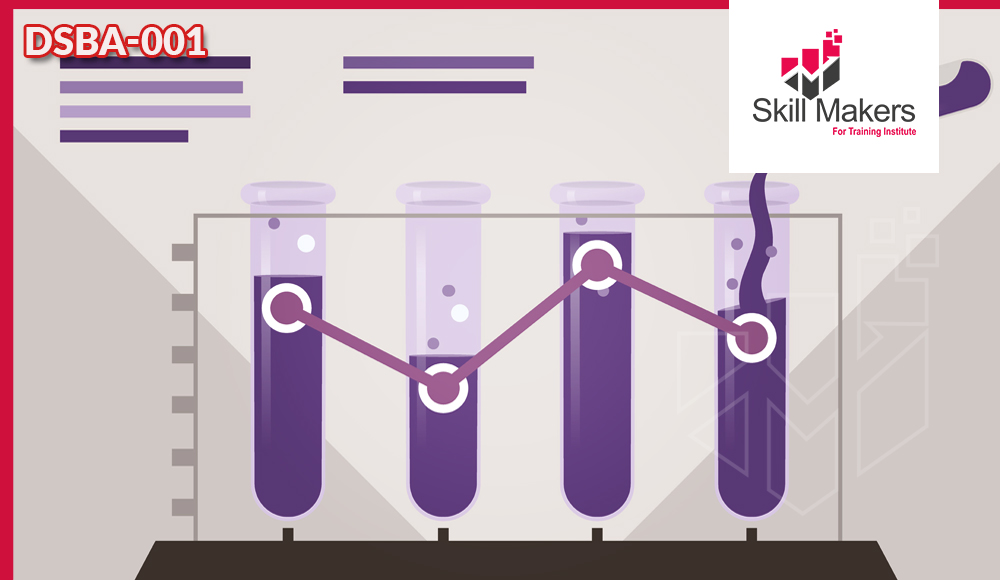-
Course Code
DSBA-001

Big Data Engineering, Data Science, Analytics & AI Applications in Practice Workshop
- A practical hands-on jump-start in adopting real-life solutions using Big Data, Data Science, Analytics and AI Applications toward Data-Driven Digital Transformation of Organizations. The workshop starts with introducing the practice itself ensuring deep understanding technically and business-wise by removing ambiguity of such emerging domain. Trainees will apply knowledge and skills to a course project that goes alongside the topics to empower design thinking and implementation skills.
- The workshop then introduced the trainees to how those emerging technologies, platforms and solutions are implemented in projects by demonstrating the lifecycle as well as common tasks carried out during each phase. The data science methods and techniques is contrasted by use cases explaining the relation between statistical modeling, machine learning and data mining. More solid understanding of Data-Driven AI-Enabled models are discussed to link those techniques by example.
- Upon building solid understanding of Data Science Models, the discussion proceeds to implementing those models into Analytics and AI Applications to process Big Data both structured and unstructured. Several Big Data technologies are introduced with uses cases, patterns and examples. The course concludes by discussing how to make the last steps to finalize, operationalize and present your solution including planning Agile implementation to roll out to production.
Learning Outcomes
Outcomes
Course Contents
- Big Data: Practical Technical Overview
- Attributes of Big Data solutions
- Data Science and Artificial Intelligence (AI) Models
- Digital Transformation and Internet of Things (IoT)
- State of the Practice in Analytics
- Big Data Analytics in Industry Verticals: Use Cases
- Architectural Aspects of Real-life Solution
- Project Introduction
- Lab Practices
- Introductions to Lean Agile and DevOps
- Data Analytics Lifecycle
- Discovery
- Data Preparation
- Model Planning
- Model Building
- Communicating Results
- Operationalizing
- Project Reflection
- Lab Practices
- Introduction to Data Modeling
- Tools: R/R Studio – Python – Other Tools
- Types of Learning (Supervised – Unsupervised – Reinforcement)
- Statistical Modeling and Visualizing the Data
- Clustering & Association Rules
- Regression Methods
- Classification Methods
- Recommenders
- Markov Decision Processes
- Text Mining and NLP
- Deep Learning and Neural Nets
- Project Reflection
- Lab Practices
- Challenges of Big Data: Structured, Unstructured and Streams
- The Massively Parallel Processing Concepts
- NoSQL Data Management Platforms
- Hadoop HDFS and YARN
- Data Ingestion and Ingestion Technologies
- Working with Hive and HBase
- Processing with Spark, Mllib and Spark Streaming
- Processing Stream using Flink
- Greenplum and MADLib
- Deploying Real-Time Analytics and AI Models on Big Data Platforms
- Project Reflection
- Lab Practices
- Architecting Data-Driven AI Applications and SW Engineering
- Cloud-Native Engineering: Microservices, Containers, CI and DevOps
- Cloud-Based Architecture: AWS, Google, Azure and Others
- Operationalizing Analytics and AI Solutions
- Building End-To-End Projects using Big Data and AI Models
- Applications Development Lifecycle and Creating Final Deliverables
- Project Reflection and Finalization
- Lab Practices
Introduction: Big Data Analytics and AI Architecture, Practices and Use Cases:
Lifecycle and Implementation in Practice:
Data Science and AI Methods:
Big Data Platforms and Technologies:
Consulting and Solution Delivery:
Our Methodology
- Make coaching and monitoring innovative and using modern
- Media training also using on the go training by using interactive means and focusing on
- The exercises, practical applications and real situations study
- Live delivery method, instructor-led training
- Experienced consultant, trainers, and professional
- Qualified trainer with high-level experience
Attendance Reports
- Send daily attendance reports to training departments
- Send full attendance report to training dep. by the end of the course
- Attend 100 % from the course days also provide daily
- Issue attendance certificate for participant who attend minimum 80% from the course duration
Pre/Post Reports
- Pre- assessment before starting training
- Post assessment after finish training
- Full report for the deferent between Pre-& Post assessment
Who Should Attend
- Technical Leaders
- Beginners to Intermediate
